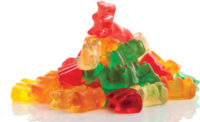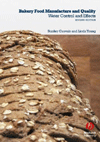Legal cannabis edibles offer an opportunity for snack and bakery companies
Make no mistake about it: Marijuana is going mainstream.

Legal cannabis is already the fastest-growing industry in the U.S., with the first two states to legalize recreational use, Washington and Colorado, currently generating more than $100 million per month in sales. The floodgates will truly open this winter as California transitions to a regulated, adult-use market, worth an estimated $7 billion annually.
Within the next couple years, projections indicate the legal marijuana industry could be worth anywhere from $20 billion to $45 billion, representing an incredible opportunity for a wide range of ancillary industries, from equipment manufacturers to packaging suppliers. And one of the fastest-growing sectors is cannabis-infused edibles.
Medicinal edibles
According to data provided by BDS Analytics infused edibles represented 13 percent of the legal cannabis market from May 2016 to May 2017, accounting for more than $280 million in retail sales in Washington, Colorado and Oregon.
This number is only a fraction of the national market. Several states, including California, Massachusetts and Maine, are anxiously awaiting the start of adult-use sales. Plus, while eight states have legalized recreational marijuana, 30 states (plus Washington, D.C., Guam and Puerto Rico) allow cannabis for medicinal purposes.
Americans, in general, are increasingly opposed to smoking, and edibles provide medical patients, in particular, a healthier alternative to smoking marijuana. Plus, edibles provide pinpoint-accurate dosing and are capable of delivering a higher concentration of THC and CBD (a non-psychoactive cannabidiol in cannabis) for those seeking medicinal benefits.
Recreational edibles
A research study published in September by two professors at Dalhousie University indicated that 46 percent of Canadians would be interested in trying marijuana edibles recreationally if it were legalized—and Canada is expected to do so by the summer of 2018.
It’s safe to say the future of this multibillion-dollar industry will be more closely tied to food products than a smokable herb.
Peruse any legal marijuana retail shop, and you’ll find a dizzying array of cannabis-infused products: sweets dominate the market, but shops carry everything from pretzels and potato chips to condiments and olive oils.
Gummies and chocolates are currently the most-popular edible categories, accounting for 28 percent and 21 percent of the market, respectively, followed by hard candies (8 percent), baked goods (7 percent) and beverages (5 percent), according to BDS Analytics.
But only a small handful of brands have developed any sort of consumer loyalty, and none have the mass-market appeal or consistency of snacks found in supermarkets and convenience stores across the country. Plus, very few infused product manufacturers have the infrastructure needed to scale up to meet market demands. Edibles manufacturers will likely turn to established food companies to create superior products, increase efficiency, improve the flavor and texture of infused snacks and baked goods, generate instant brand recognition through licensing agreements, and ramp up production.
The cannabis industry also represents a major opportunity for non-infused snack producers and bakery companies. Marijuana retailers are incentivized to sell as many non-cannabis products as possible due to federal tax rules. Most states allow licensed marijuana retailers to sell non-infused snacks in addition to cannabis products, meaning millions of consumers will be grabbing a tasty snack in addition to buying legal cannabis products at their local pot shop.
Ancillary companies that jump on board early could gain a major, strategic advantage in the fastest-growing industry in North America. Those that hesitate could be left to fight over the crumbs.
Looking for a reprint of this article?
From high-res PDFs to custom plaques, order your copy today!








